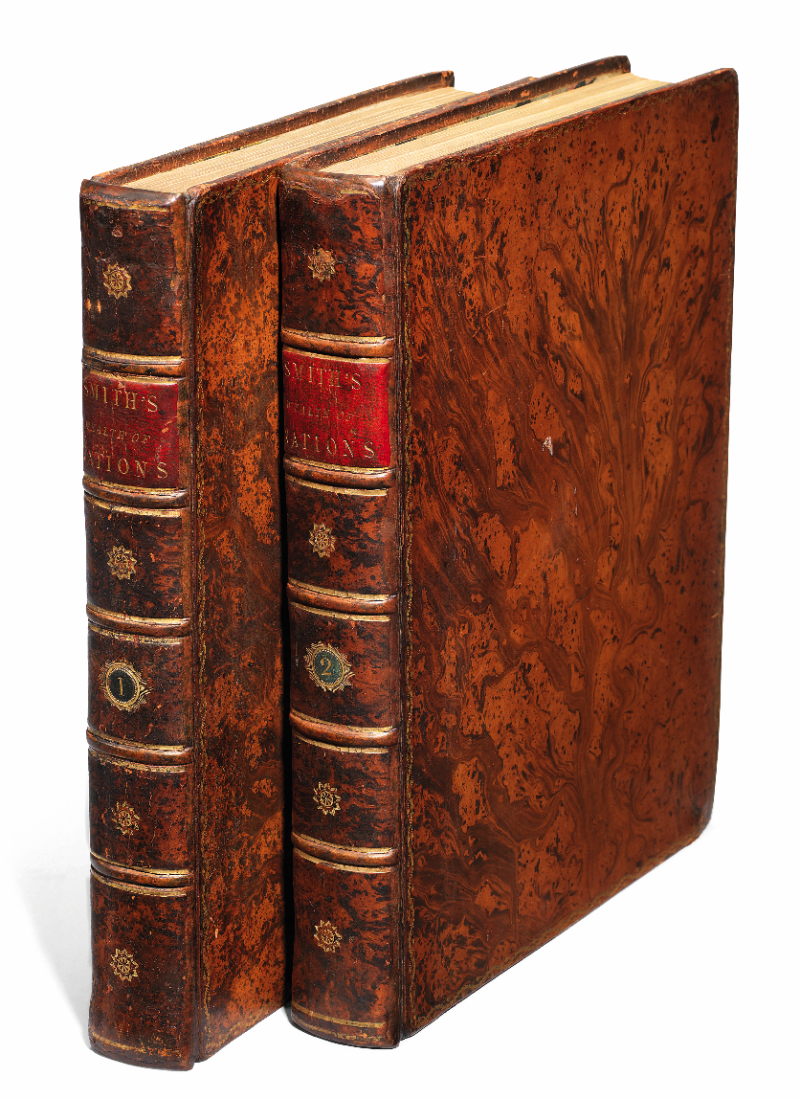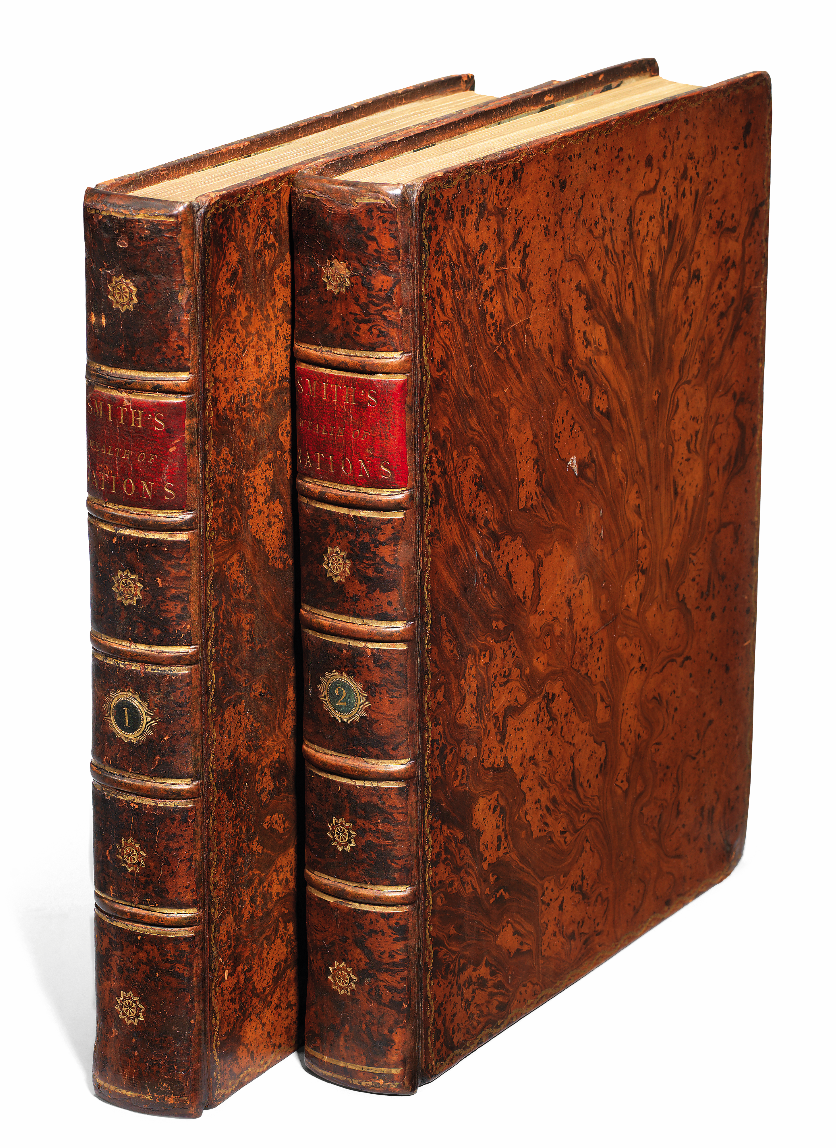
Adam Smith
The Wealth of Nations
1776
Rare Ancient Edition
Adam Smith (1723–1790), born in Scotland, was a philosopher and economist. His seminal work, The Wealth of Nations, is regarded as the foundational text of modern economics, aiming to explain the historical development of European industry and commerce. For this reason, he is known as the “Father of Classical Economics”. Smith’s intellectual framework extended beyond the realm of economics. He once stated that The Theory of Moral Sentiments and The Wealth of Nations were merely two components of a “broader and more comprehensive intellectual system” he sought to establish. Another intended part of this system was an account of “the general principles of law and government, and of the different revolutions they have undergone in the different ages and periods of society”, which remained unwritten.
The Wealth of Nations is considered the foundational work of modern economics. In 1901, Yan Fu introduced this work to China for the first time under the translated title Yuan Fu. In 1931, Guo Dali and Wang Yanan retranslated and published it under the now-standard title Guo Fu Lun. During China’s transition from a planned economy to a market economy, Adam Smith’s exploration of market mechanisms and the theory of free competition became a crucial reference for economists in understanding market economy principles. With the establishment of China’s market economy system, economists not only focused on Smith’s theories of market mechanisms but also began to examine the moral philosophy aspects of his work, emphasizing the balance between market forces and social responsibility.



